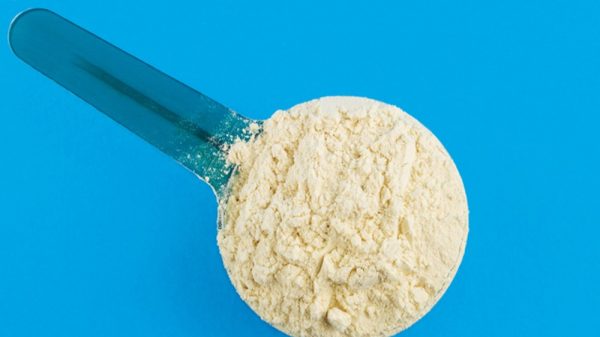Are mild ascites dangerous? First, what is ascites? Ascites is an irregular accumulation of fluids within the abdomen. This means it is over 25mL in fluids of your peritoneal cavity. Symptoms can include expanded abdominal size, heavier weight, abdominal discomfort, and shortness when taking breaths. Complications may come with bacterial peritonitis which acts spontaneously. Ascites relates to abdominal pains, along with swelling because of the build-up of fluids. Numerous underlying diseases could very well be responsible for causing ascites, such as kidney disease, tuberculosis, pancreatitis, and a thyroid that is underactive. However, the major reasons associated with ascites are cirrhosis, cancer, and heart failure.
Small quantities of fluid inside of the abdomen in most cases cause zero symptoms. Moderate levels could increase the patient’s waist size as well as result in weight gain. In several men and women with ascites, their ankles start to swell mainly because excess fluid collects there. This causes edema. Your legs may get swollen as well. This may be quite uncomfortable. However, the riskiest problem identified together with ascites is actually an infection, which may be fatal. Ascites can go away through a diet low in salt and with the help of diuretics. When ascites is left without treatment, peritonitis, kidney failure, or blood sepsis could possibly occur. The fluid might migrate towards the lung cavities. Keep reading to learn more about ascites, and mild ascites specifically.
Mild Ascites: What is It?
Ascites is a major complication associated with liver cirrhosis as well as portal hypertension. It is further associated along with a negative prognosis. In just 10 years of a cirrhosis diagnosis, over 50% of sufferers develop ascites. The mortality rate is 15% within one year and 44% after a follow up of 5 years. Consequently, individuals with ascites must be evaluated for a liver transplant, ideally prior to the building of renal disorder.
Mild to average ascites is managed by salt limitation and diuretic therapies. While this is done, its underlying reason is also looked upon, so as to prevent any complications, relieve its symptoms, and avoid further progression. TA combination therapy together with furosemide may well be necessary for patients that do not act in response to spironolactone exclusively. Tense ascites usually are remedied by paracentesis, succeeded by an albumin infusion, then a diuretic therapy. Cure options concerning refractory ascites entail repeated paracentesis as well as trans-jugular intrahepatic portosystemic shunt placement for patients that have a conserved liver function.
For men and women having mild ascites, therapies will be performed. The objective is bodyweight reduction of not bigger than 1.0 kg daily for those that have a combined ascites alongside peripheral edema. It is not greater than 0.5 kg daily target for individuals having ascites alone. For those having serious ascites leading to a tense abdomen, hospital care is generally required for paracentesis. It is crucial to identify non-cirrhotic with cirrhotic factors of ascites in order to direct therapy among patients that do have noncirrhotic ascites.
Bonus Facts about these Abdomen and Liver
- The abdomen (frequently known as the stomach), is the space between your chest/thorax and pelvis. The diaphragm shapes the top surface of your abdomen. Around the pelvic bone level, your abdomen ends where the pelvis proceeds. Among humans as well as various other vertebrates, that abdomen is that fore region in the abdominal portion of one’s trunk. The abdominal cavity is what you call the region that is occupied by your abdomen.
- Liver transplants usually involve slicing a specific part of one’s liver coming from the donor in order to transfer it towards the receiver. Furthermore, the portion of the liver that is cut coming from the donor easily grows back.
- The liver never makes use of sugar in support of energy. It merely stores sugar. In actuality, your liver is the residence for any extra sugar which we take in. It keeps the sugar in the form of glycogen. In between meals when the body demands sugar, your liver breaks glycogen in order to create glucose. The glucose is subsequently made use of by your body for energy fuel.
- Nearly all medications that we take in are handled by this particular liver. Because the body is incapable of making use of medications as they are, your liver starts to breaks these down into a particular form that your body is able to use.
- Your liver is trusted for creating enzymes as well as chemicals that help the blood clot during the occasion of bleeding because of a cut.
- The liver is additionally responsible for producing cholesterol. While higher amounts of low-density lipoprotein/bad cholesterol are indeed damaging, cholesterol is further required for creating cells.
- Hormones are needed for the normal performance of your body because these are considered body messengers. Lack of hormones can lead to irregular body functioning mainly because they do not succeed to correspond properly.
- The liver holds responsibility for carrying out more than 500 various vital functions inside your body.
- Among all the metabolic organs existing in the body, your liver tops as the most specialized. It is also the biggest organ.
- The liver houses 10% of your overall blood inside the body. It is able to filter about 1.4 blood liters each minute.
- The Greeks regarded the liver as the dwelling of all of the human emotions. To them, your liver is the organ nearest to the divine being.
- The Greeks had this practice of sacrificing oxen and goats then examining their livers in order to identify if they are able to win victoriously in a war or battle.
- The first liver transplant conducted was performed by Dr. Thomas E. Starzl during the year 1963 at Colorado University. However, the transplant failed due to a lack of beneficial immuno-suppressive substances. He performed a second attempt during 1967 which became successful.
Now you know interesting facts about the liver and how ascites and mild ascites are managed and prevented as a condition.























